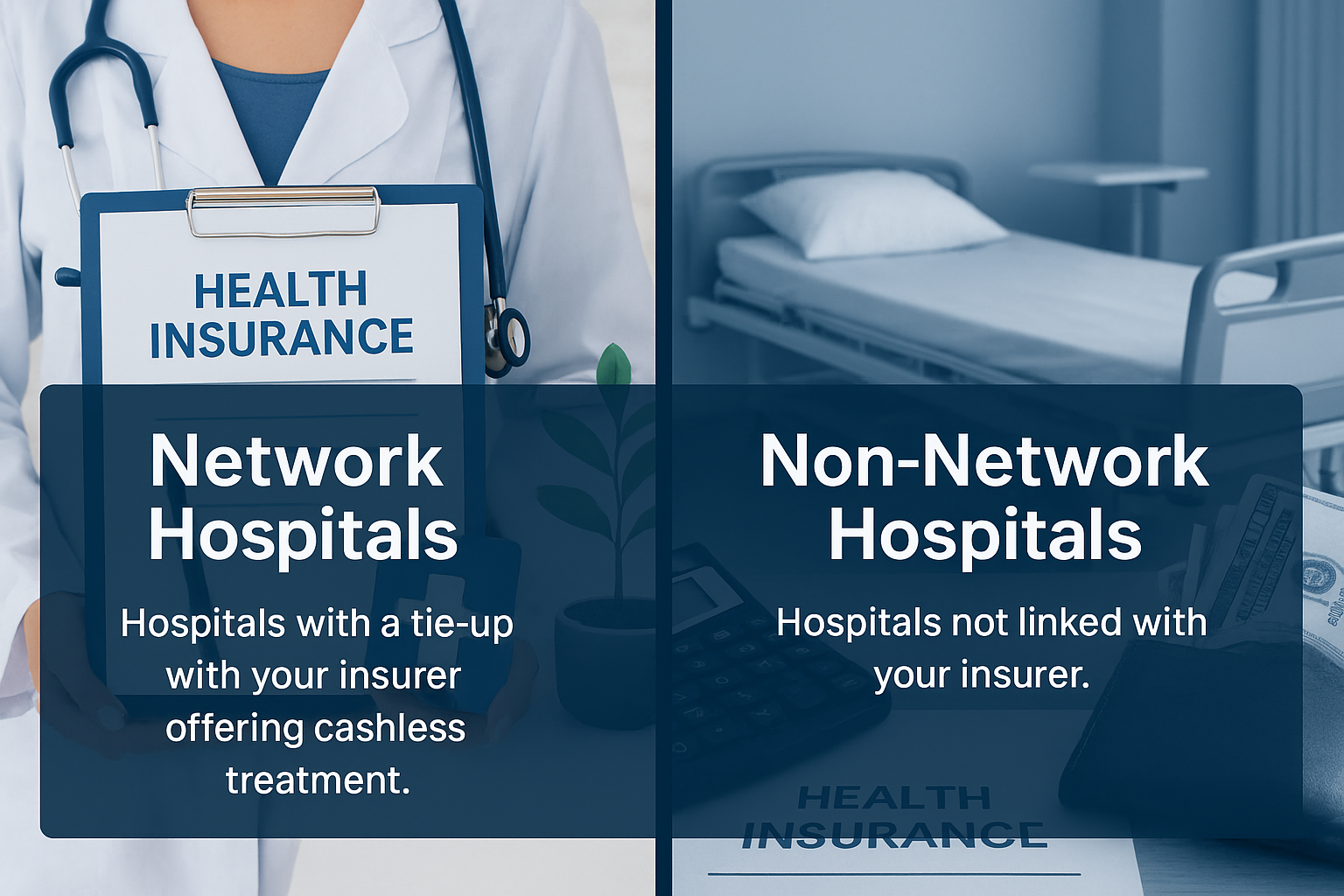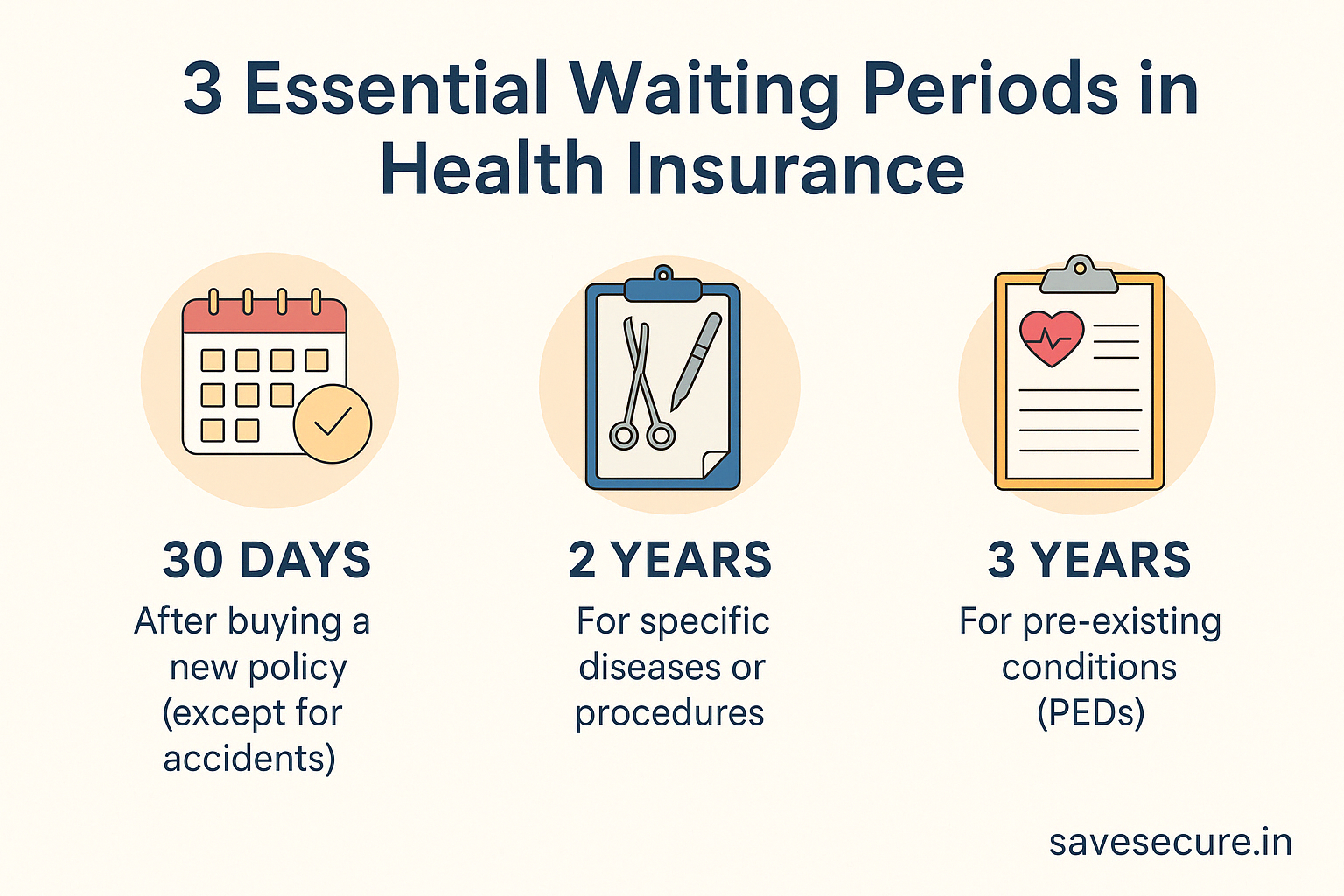
When it comes to health insurance, choosing the right hospital during treatment can make a big difference in your claim experience. One of the most important aspects to understand is the difference between network Hospitals and non-network hospitals.
What are Network Hospitals?
A Network Hospital is a hospital that has a tie-up (agreement) with a health insurance company to offer cashless treatment to its policyholders.
When you go to a network hospital for treatment, you don’t have to pay the full hospital bill upfront. Instead, the insurance company settles the bill directly with the hospital — this is called a cashless claim.
What are Non-Network Hospitals?
Non-network hospitals are not tied up with your insurer. If you get treated here, you’ll need to pay the hospital bill yourself and then file for reimbursement.
Claim procedure for Non-Network hospitals
1. Pay First
You have to pay the full hospital bill from your own pocket before you leave.
The insurance company won’t pay the hospital directly because it’s not in their approved list.


2. Collect all original documents
Take all original papers from the hospital — bill, doctor’s prescription, test reports, and receipts.
These are needed to file your claim later.
3. Submit to insurer within 7–15 days
Send these documents to the insurance company as soon as possible (ideally within 7–15 days).
If you delay, they might reject or reduce your claim.


4. Insurer verifies claim
The insurance company will check your documents to make sure the treatment is covered under your plan.
5. Get reimbursed in 7–30 days
If everything is okay, they will send the approved amount to your bank account in about 1 to 4 weeks.

Benefits of network Hospital
- Cashless Treatment
You don’t have to pay the hospital bills upfront the insurance company pays directly. - No Need to Arrange Funds
Especially during emergencies, you can focus on recovery , not arranging money & their are various plans have restoration benefit. - Hassle-Free Process
The Hospitals and Your Insurance Agent will Handle Most of the paperwork.
- Faster Claim Approvals
When you go to a network hospital, the insurance company gives quick approval for your treatment. This helps you get admitted faster — whether it’s an emergency or a planned surgery. - Pre-Negotiated Rates
the Insurance Company and the Hospitals have already agreed on fixed prices for common treatments, surgeries, room charges, and other services. - Expert Support from Your Insurance Advisor
Easier coordination and assistance throughout your treatment journey when you use a network hospital.
Drawbacks of Non-Network Hospital
- No Cashless Treatment : You must pay the entire bill upfront at the time of discharge. The insurer won’t settle it directly with the hospital.
- Financial Pressure During Emergencies: Needing to arrange large funds quickly can be stressful for the patient and family, especially in critical situations.
- Manual Reimbursement Process: Unlike network hospitals where the process is handled for you, here you must collect and submit all original documents — bills, prescriptions, reports, etc.
- Longer Claim Settlement Time: Claims are processed only after discharge and document verification, which can take 7 to 30 days or more depending on completeness and insurer timelines.
- NO Pre-Negotiated Rates : Non-network hospitals can charge more than standard rates, but your insurer may only approve what they consider reasonable — leaving you to cover the difference.
- No support from Advisor : Unlike network hospitals, you won’t get claim support from hospitals or from Your Insurance Advisor — you’re on your own to manage the process.
Health insurance isn’t just about having a policy — it’s about using it wisely.
Choosing the right hospital during treatment can protect you from unexpected costs and claim hassles.
*Make sure you understand your insurer’s hospital network.
*For planned treatments, always prefer a network hospital.
Your health is your wealth. Make informed choices today for a smoother tomorrow.
Submit your review | |


Pingback: IVF now covered in health insurance ! - Save Secure